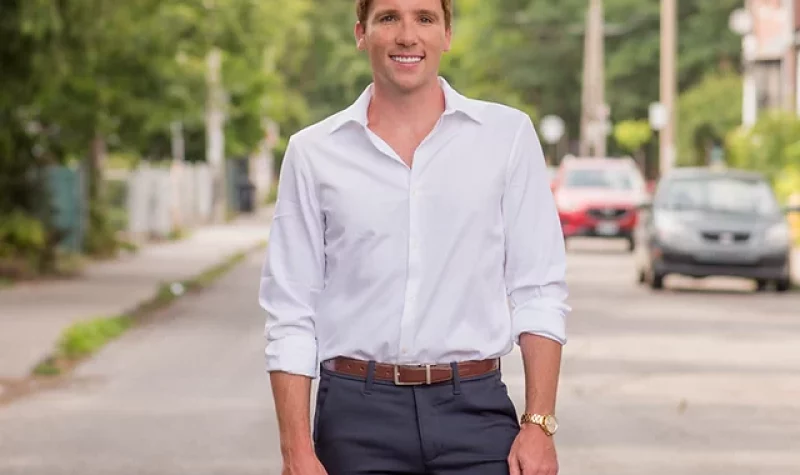In the lead up to the 2022 Toronto municipal election, CJRU is reaching out to all candidates in the downtown core.
Andrew Layman said he is running a grassroots campaign to bring a "common sense voice" to city council for Ward 11 University-Rosedale constituents this October.
"We need politicans and representatives who are there to listen to constituents, to find common sense solutions to everyday problems, and to make sure we can engage in conversations even when we disagree."
Layman, who was raised by a single mother and relied on food banks and social welfare during his childhood, said he knew he always wanted to make a real change to the dynamic of city council.
His experience working in human resources for "employee rights" inspired the intention to run as well, he said.
"The intentions of this grassroots campaign is to prove that your everyday layman, your everyday Torontionian has a real shot at winning."
As part of the campaign, Layman has no "big-name affiliations or ties to money and power," according to his website.
"I bring a common sense voice, I bring a voice that will listen to every constituent - a voice that will not cancel, police or monitor or sensor anyone's language or perspectives."
Layman's platform focuses on affordability, safe and accessible communities and shareable roads around the ward.
"Affordable housing the top of the ticket for me," he said.
Layman said over 60 per cent of Ward 11 residents are renters with more than 30 per cent of their income going to rent.
He proposes to work with housing developers to ensure a certain percentage of new developments are affordable. This includes affordable housing at 80 per cent market rate and deeply affordable housing at 40 per cent of market rate.
Further, Layman said the city should regulate the thousands of vacant housing units. He said developers and homeowners should be held accountable with a fine when units are vacant for more than six months.
To help alleviate the strain on the shelter system, Layman said the system needs to be regulated better with audits and by speaking with those with lived experiences.
"We can't put some funding [into the shelter system] and just step aside."
For community safety, he said there should be "a re-imagining" of police services.
"I reject the notion of abolish the police," said Layman.
He proposes allocating funding for other services including mental health support in association with police as partners.
For climate action, Layman proposes community-based initiatives that are tangible for residents.
"When we take about overly ambitious climate change goals, it doesn't seem realistic to ask your everyday constituent who is struggling right now, 'you have to stop using your car, you need to stop doing this, you need to stop doing that, in order to have zero emissions.'"
Instead, Layman said the city can protect its waste water system, leverge more recycled materials into developments and increase the tree canopy from 27 to 40 per cent.
As the election enters its final stretch, Layman wants to remind voters that he is a longtime resident of Ward 11 and has demonstrated his love for the ward and city through his community involvement.
"I believe in meritocracy, I believe in, you know, agency, that people have the power to uplift themselves with a little bit of help, and I want to be that little bit of help for our constituents."
Toronto's election is scheduled for Oct. 24.
More information on Andrew Layman's campaign can be found here.
Listen to Andrew Layman's full interview:


